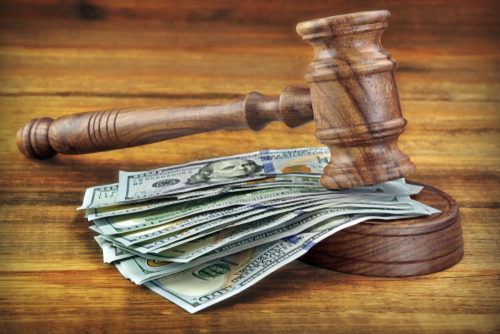Judge rules retirement accounts of former BigLaw lawyer can be tapped for $10.4M restitution order

Image from Shutterstock.com.
A federal judge in New York City has ruled against a former income partner with Katten Muchin Rosenman in the federal government’s bid to garnish his retirement accounts to help pay a $10.4 million restitution order.
U.S. District Judge Kiyo Matsumoto of the Eastern District of New York ruled Friday that Evan Greebel couldn’t prevent the government’s garnishment following the lawyer’s conviction for conspiracy to commit wire and securities fraud in connection with his representation of jailed drug company CEO Martin Shkreli.
Law360 has coverage.
Prosecutors had accused Greebel of helping Shkreli pay off investors who lost money in his hedge funds with assets from Retrophin, the company for which Greebel was outside counsel.
After Greebel was sentenced to 18 months in prison, the government sought to garnish Greebel’s interest in his defined contribution plan at Katten, valued at $788,086 in 2018, and in his 401(k) at his former law firm, Fried, Frank, Harris, Shriver & Jacobson, valued at $133,283 in 2018.
Greebel had argued that he didn’t have a current, unilateral right to withdraw funds from either plan, making the funds unavailable for garnishment under an exemption to the Mandatory Victims Restitution Act.
Matsumoto said Greebel’s arguments were based on “creative, if not tortured, constructions” of his retirement plan documents.
Greebel was entitled to a lump sum distribution from his Fried Frank plan when he left the firm, Matsumoto said. And he was entitled to withdraw any amount from the Katten plan because he was an “inactive participant.”
Greebel “cannot plausibly argue that he lacks ‘rights to’ funds which he is able to ‘fully access,’ ” Matsumoto said.
Greebel also argued that, if the government could garnish the funds, it was limited to garnishing 25% under the Consumer Credit Protection Act.
Matsumoto ruled that the government is limited to a 25% garnishment once distributions have begun but not when it garnishes the entire account at once.
Reed Brodsky, an attorney for Greebel, told Law360 an appeal is planned.
“It’s incredibly important for all of us that retirement accounts remain protected under the Consumer Credit Protection Act and the plan documents from government seizure,” he told the publication.



